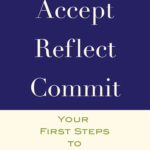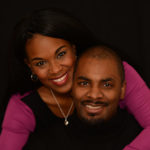Q&A with Author Michèle Swiderski
 After 10 years of battling depression and anxiety, Michèle Swiderski wrote her first book, A Joyful Life: How to Use Your Creative Spirit to Manage Depression, with the goal of helping others who felt stuck in a revolving door of mental illness.
After 10 years of battling depression and anxiety, Michèle Swiderski wrote her first book, A Joyful Life: How to Use Your Creative Spirit to Manage Depression, with the goal of helping others who felt stuck in a revolving door of mental illness.
Here, Michèle tells us why she felt called to share her story and details some of what she has learned over the years.
What prompted you to write a book about your experience battling depression?
My most recent healing experience from depression and generalized anxiety was unique. I felt I had stumbled onto a huge secret that I was compelled to share with the world. I had been through bouts of depression before and never felt strong once over the hump. Even though I was well enough to return to work, I remained extremely fragile and vulnerable. But this time was different. This time I felt strong because I had discovered the right mix of “ingredients” for my self-designed treatment plan. I knew specifically what I, Michèle, needed to maintain balance in my life. And much of it did not fit under a traditional medical approach. I hoped that others could benefit from what I learned.
What did you learn in the process of writing the book? Was it therapeutic for you in some way?
Yes, it surprised me how very therapeutic writing my story was. I never expected that, because it was not the reason I wrote this memoir. But it was a nice bonus. It was as if writing my story released me from a huge weight, as if I had given it wings to go inspire others. It was a beautiful thing, looking back. Maybe I could liken it to a musician who writes a musical score and until the piece is finished and made public, it only exists in her head, but once the music is released into the world it no longer consumes her head. And there is now room in that creative part of her brain for other scores. Does that make sense? It was extremely freeing for me.
How do creativity and spirituality relate to a person’s mental health and well-being?
I can only speak for myself, but I suspect that much of what I learned during my healing year, how creativity took a central role in my healing, could be applied more broadly. My experience with the healing power of creativity has certainly changed the way I look at the act of creating; engaging in creativity was always a natural inclination for me, but now I understand that it is a must for my mental health! The same is true regarding Spirit—that if we allow Spirit to take up residence in our lives and we keep it well nourished, it can most certainly have a healing effect, that Spirit is important for our overall life balance. I would not be the first to suggest the healing power of prayer, for example. I think it is universally understood by those who care to explore spirituality.
Do you still use the principles in your book in your everyday life?
Absolutely! If I don’t, my well-being becomes shaky and I find myself dragging through the day wondering what is wrong, why I am feeling down, or why I have lost my get-up-and-go. If I omit morning meditations, don’t get exercise or don’t see my friends for a while, it’s amazing how quickly the mood can sink. Equally important is how suddenly it can be lifted with the needed correction.
That’s why I included a template for developing a personal action plan in my book, something to create when feeling well so that it is ready to guide us back when we are unwell.
What do you hope readers take away from A Joyful Life?
I would like readers to come away with hope in the struggle with depression and anxiety. The battle is not easy; I know that. It might be the biggest challenge of our lives, but it is still possible to heal from depression and it is worth investigating a different approach. It is possible to have depression and still lead a happy life – but it is a constant work in progress.
For me, it was a matter of trusting Spirit and relinquishing control for my day-to-day existence, plus needing to be disciplined in integrating daily creativity as part of my wellness plan. If readers think they don’t have time to “play,” I would ask, how much do they value mental health?
I also want them to understand that I am not suggesting an alternative to medication. Personally, when I was finally prescribed the right medication, one that worked with my particular brain chemistry, it was like being given back my personality dipped in sunshine, something I hadn’t seen in over twenty years. It was a very joyful reunion indeed. But in my view, medication alone is not enough. It works best when combined with Cognitive Behavior Therapy or something similar, as well as with regular exercise, a healthy diet, and limited intake of alcohol and caffeine or other stimulants. Depression is a serious illness, and we need to treat it with respect.


